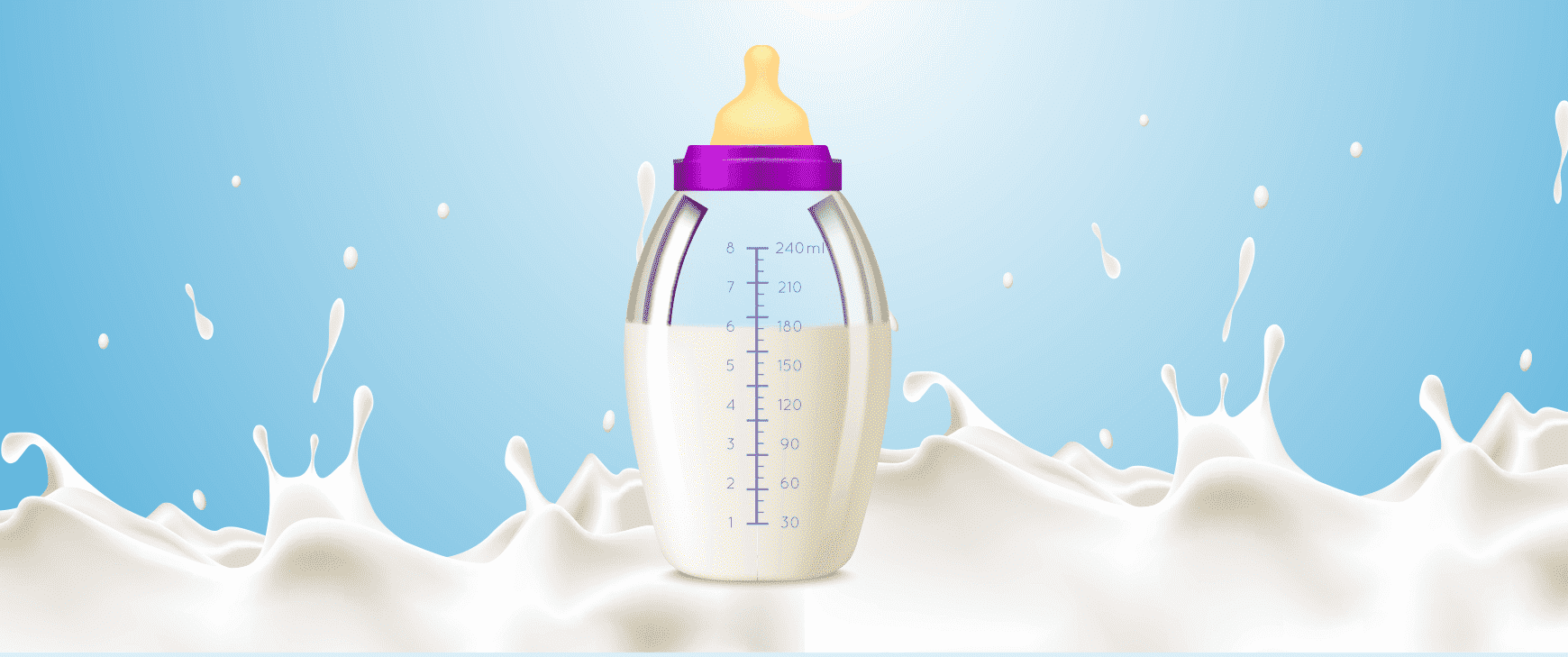Baby Bottle Tooth Decay
Salih ÖNDER2023-10-26T15:13:40+03:00Mothers may think they are doing the right thing by giving their babies a bottle before a nap or at night to help them relax and fall asleep faster. However, this behavior means that if the bottle is filled with a different liquid other than water, you are predisposing to common dental caries in your baby, called bottle decay or early childhood caries.
Although temporary, your child’s milk teeth are important and more susceptible to decay than permanent teeth. Your children need strong and healthy teeth to chew food, talk and have a good-looking smile. Their first teeth also help their adult teeth erupt properly. In order to protect children’s teeth for many years, it is essential to provide them with good oral care and to educate them on this issue.
What is bottle rot?
Bottle decay is the decay of your baby’s first teeth under the influence of bottle feeding. These bruises; It occurs when your baby’s teeth are left without cleaning for a long time after giving a bottle of sugary drinks such as fruit juice, milk or formula. A bottle can help your baby fall asleep; however, this is extremely harmful for oral and dental health. Because the bacteria in the mouth feed on the uncleaned food residues in the mouth and secrete acidic substances that cause tooth decay.
What causes bottle rot?
Baby bottle caries is mostly seen in the upper front teeth, but other teeth are often affected by the caries. There are many factors that can cause tooth decay in babies and young children. Among these, the most common cause is frequent and prolonged exposure of the baby’s teeth to sugar-containing beverages. Bottle rot occurs when the baby is frequently given a bottle to put him to sleep or to calm him down.
Tooth decay in infants and young children is a disease that can begin with the transmission of cavity-causing bacteria from the mother (or primary caregiver) to the infant. This bacterium is transmitted from the saliva to the baby. If the mother puts the baby’s feeding spoon in her mouth or cleans her pacifier in her mouth, the related bacteria can be passed on to the baby.
What can be done to prevent bottle rot?
Giving up the bottle feeding behavior while putting your baby to sleep will be an important step to prevent bruises. It is necessary to stay away from using a common spoon with your baby or cleaning the pacifier in your mouth. Some of the other measures that can be taken are;
- Wiping your child’s gums with a clean, damp gauze pad after each feeding will help remove food residue from the mouth.
- After your child’s milk teeth have erupted, their tongue should be gently brushed using a child’s toothbrush, using a lentil-sized amount of baby toothpaste.
- Between the ages of 3 and 6, their teeth should be brushed with a pea-sized amount of toothpaste, again using a soft children’s toothbrush.
- Before going to sleep, babies should finish their bottles and clean their gums or teeth.
- Getting your children used to drinking from a glass as soon as possible will have a positive effect.
- When your child’s first tooth appears, it’s helpful to schedule regular dental visits with your dentist.
- It should be kept in mind that starting dental care early is the key to good dental health.
How long do bottle decay treatments last?
The duration of treatment is determined by the Pedodontist according to the condition of the caries. It is necessary to consult a Pedodontist when caries begin to form.
How is bottle rot treated?
Treatment depends on your child’s age and the characteristics of the caries. Early diagnosis of a dental problem makes treatment easier. White spots on the surface of a tooth are an early sign of bottle decay. At this stage, it may be effective to apply oral fluoride therapy or topical fluoride varnish to remineralize all teeth. Again, at this stage, you can stop the progression of caries with a diet away from sugary foods and drinks.
If rot is detected in the later stages, fluoride treatments are no longer sufficient. In this case, applications such as filling, amputation or root canal treatment are necessary. Hospitadent provides services in pediatric dental clinics in all its branches with its expert staff and advanced technology equipment.
Treatment Summary
Number of Transactions
2-3
Return to Work Process
Now
Processing Time
10 Days
Full Recovery Process
Now
Anesthesia Method
Local anesthesia
Persistence of Results
5 Years
Sensitivity Process
Non
Eating - Drinking Process
2 Hours Later
Note: *The information and recommendations on this page are for informational purposes only. Please consult your doctor for diagnosis and treatment. WhatsApp line.
Bütün İşimiz Diş


